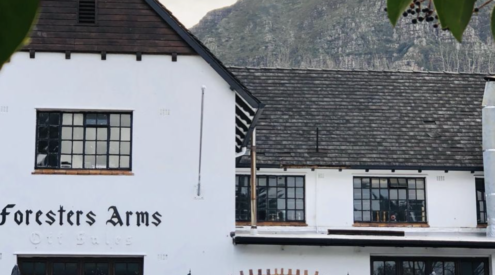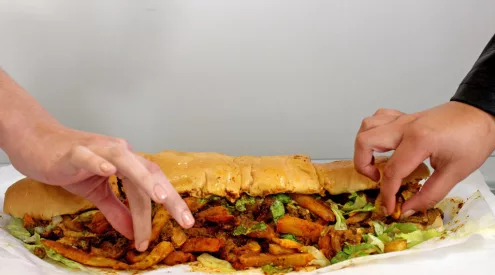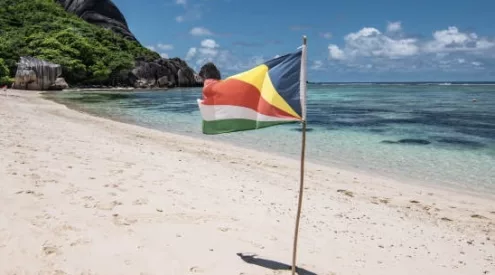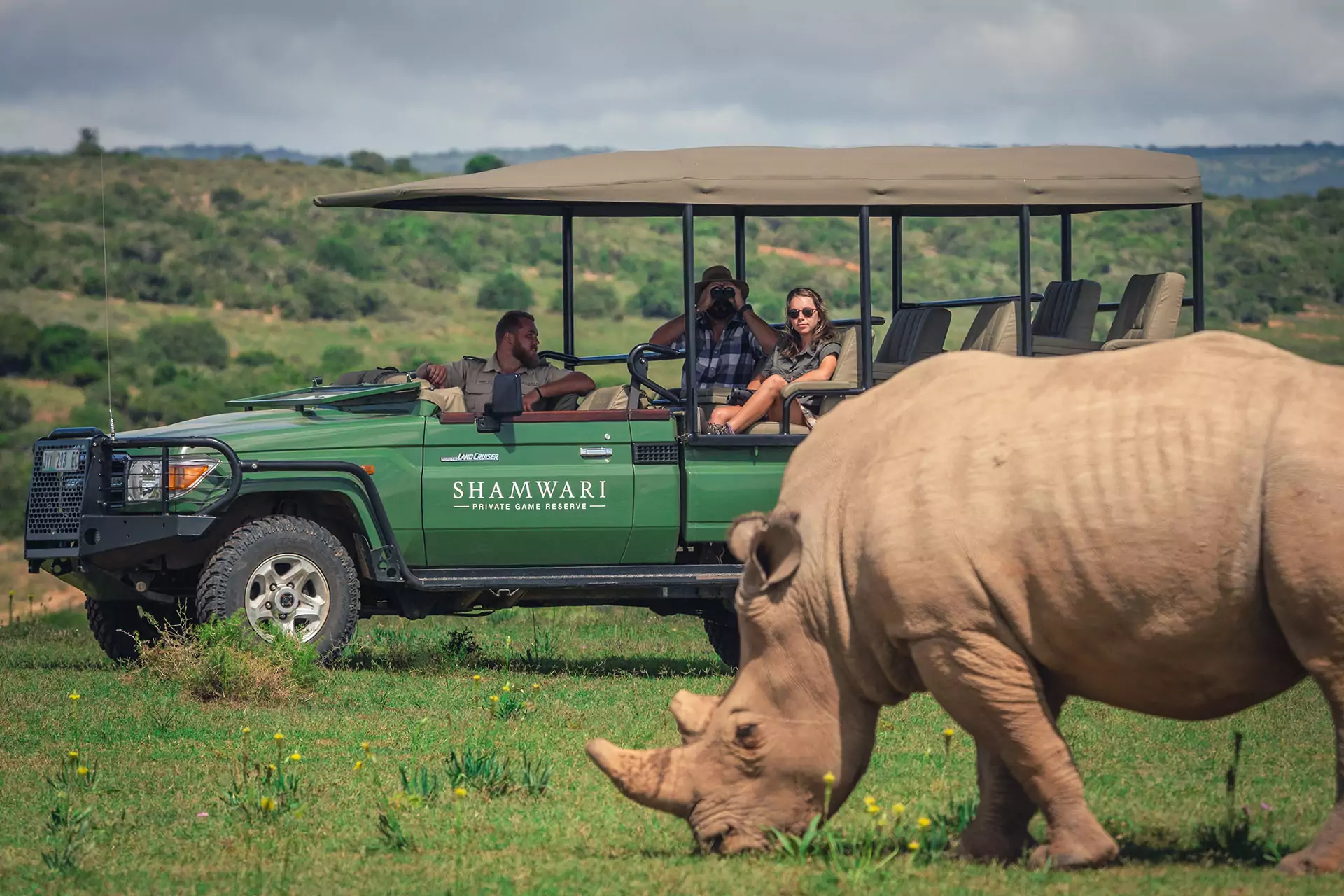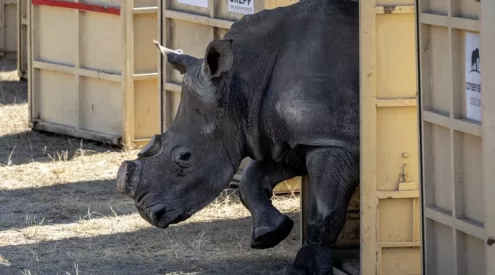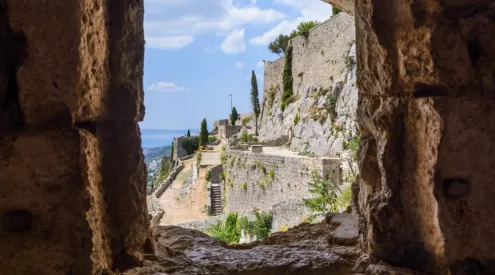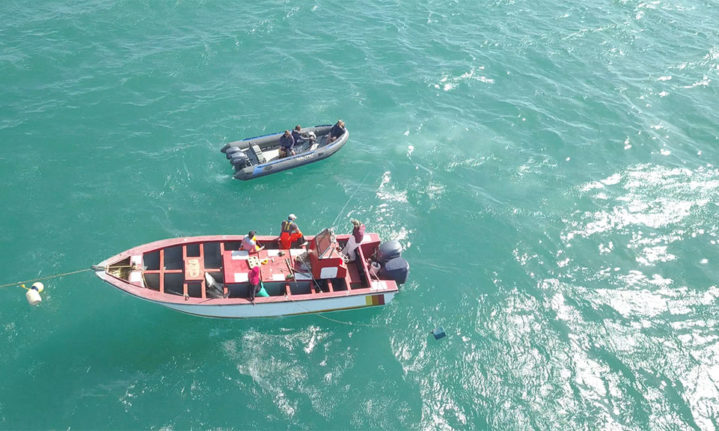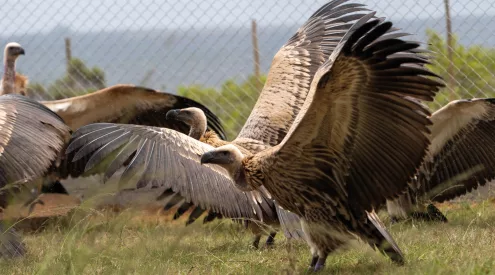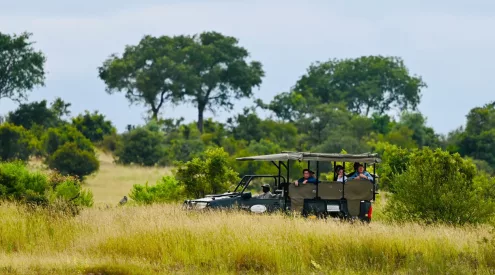Shark cage diving is a huge tourist drawcard in Gansbaai and adventure seekers look to operators, like the well established Marine Dynamics, to deliver the goods.
There are never guarantees of seeing sharks and with great white sightings dwindling in both False Bay and further up the coast. Shark-cage diving operators have still been able to offer clients the experience of viewing sharks from the cage as smaller bronze whaler sharks – also known as copper sharks, frequent the bay.
However, on Wednesday 19 February tourists were appalled when a fishing boat nearby started catching bronze whaler sharks right in front of where they were observing the creatures, according to a press release by Marine Dynamics on behalf of Great White Shark Protection Foundation.
Bronze whalers are not a protected species so catching them is not illegal, however, they mature late and can only reproduce when they are about 20 years old, which makes them a vulnerable species. The International Union for Conservation of Nature considers the species as ‘near threatened’ and scientists, conservationists and tour operators are concerned that recreational shark fisheries could mean the ‘death knell for their industry’.
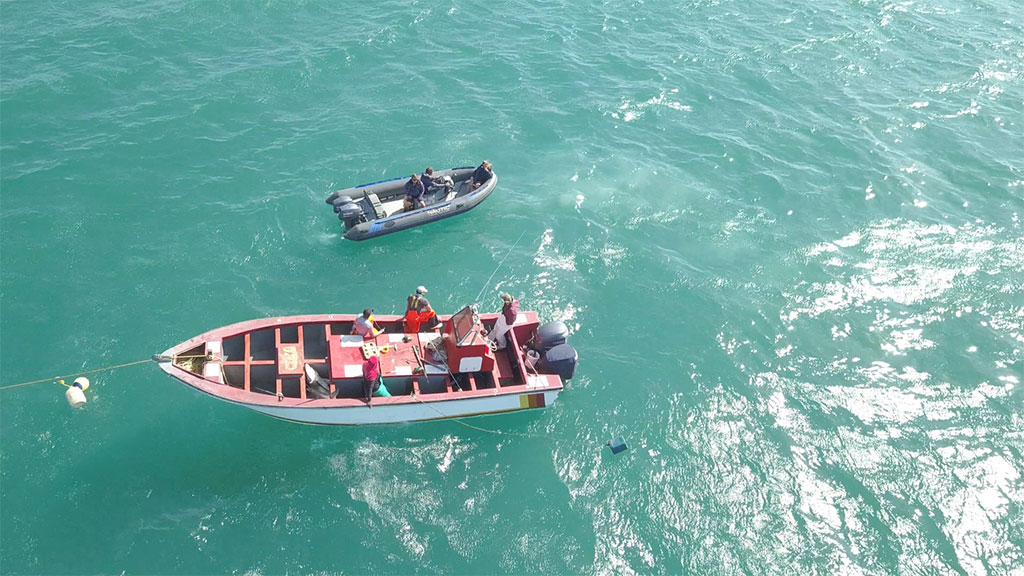
Close up of fishing boat with dead bronze whaler shark on board. Image credit: Marine Dynamics
‘In an effort to prevent the complete implosion of the shark cage diving industry in Gansbaai, operators in the area have resorted to a number of measures to preserve the billion-rand, eco-tourism industry that employs an estimated 250 people, and indirectly supports more than 1 600 dependents – from proposing a propose a small exclusion zone for the fishing of bronze whaler sharks, to trying to compensate the fishermen in order to ensure the survival of the species.
Operators have paid out close to R900,000 over the last three years. The presence of the “bronzies” has ensured the viability of the shark cage diving industry during a time when great white shark sightings are more infrequent due to a variety of reasons,’ said Chivell.
Wilfred Chivell, owner of Marine Dynamics said: ‘Whilst we fully understand that fishermen can legally catch bronze whaler sharks, the minimal amount that they stand to lose by not fishing in the same area where we take our guests, cannot compare to the loss of an entire eco-tourism industry. If the capture and killing of these sharks continue in this small and specific area in which we operate, it will lead to companies closing and people losing their jobs.’ The fishermen have argued that the shark demersal longliners off the South Africa coastline are depleting the stocks and in turn affecting their livelihood. Shark operators agree that these longliners are impacting the entire ecosystem.
Also read: Swimming with the sharks in Gansbaai:
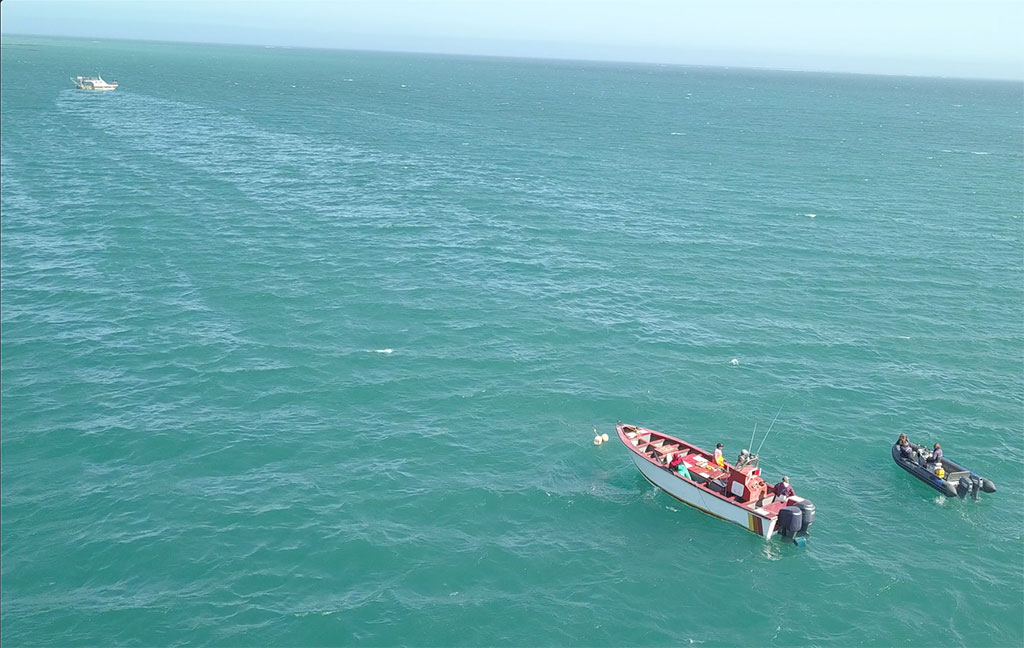
Fishermen catching a bronze whaler on 19 February. The people on the boat next to the fishing boat were negotiating with the fishermen, asking them to stop fishing here. Image credit: Marine Dynamics
Chivell and others who are invested in the welfare of sharks, as well as the shark-cage-diving industry contacted Barbara Creecy, the Minister of the Department of the Environment, Forestry and Fisheries, in August last year, who said that a meeting should be tabled to discuss the matter.
A meeting has still not taken place and Chivell wants Creecy to declare an ’emergency exclusion zone’ in Gansbaai that prohibits the catching of any sharks in the area to protect sharks, the operators and their paying guests.
Featured image: Bernard du Pont/ Flickr

